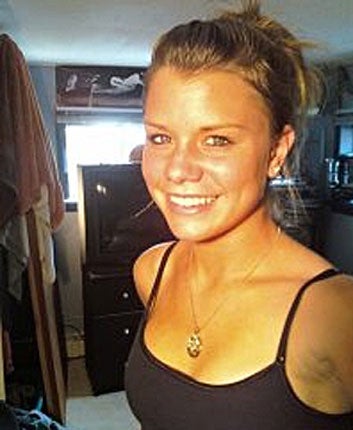Warning as America's online game of 'truth or dare' comes to Britain

Your support helps us to tell the story
From reproductive rights to climate change to Big Tech, The Independent is on the ground when the story is developing. Whether it's investigating the financials of Elon Musk's pro-Trump PAC or producing our latest documentary, 'The A Word', which shines a light on the American women fighting for reproductive rights, we know how important it is to parse out the facts from the messaging.
At such a critical moment in US history, we need reporters on the ground. Your donation allows us to keep sending journalists to speak to both sides of the story.
The Independent is trusted by Americans across the entire political spectrum. And unlike many other quality news outlets, we choose not to lock Americans out of our reporting and analysis with paywalls. We believe quality journalism should be available to everyone, paid for by those who can afford it.
Your support makes all the difference.It is the latest social networking phenomenon that has polarised America. Advocates describe it as a way for people to "reveal their personalities in an authentic way". Critics cite it as "a digital version of 'truth or dare' served up with the bitchy anonymity of graffiti on the toilet wall".
Now Formspring, the San Francisco-based online question and answer service, is soaring in popularity among British teenagers, despite a cautious reception among parents and teachers.
The site, which launched in November 2009, claims to unite people through sharing "personal and interesting responses". It currently has over 23 million users – more than Facebook's entire UK membership. New data shows that British usage has increased in the last year by more than 200 per cent to 1.1 million users in March, according to UKOM/Nielsen.
The site invites members to upload questions anonymously and invite their friends to answer, while members can search for friends by connecting their Formspring account to a wealth of popular social networks including Facebook and Twitter.
It comes amid a growing appetite for question and answer services online. But unlike rivals such as Yahoo Answers, Quora and Stack Overflow, all of which command significantly smaller audiences, Formspring promotes both identifed and anonymous posting – a source of contention for many of those watching from outside.
Karl Hopwood, an internet safety consultant and former headteacher, is among a growing number of critics that say the site can be a "fast track" for cyberbullying. "The content that is being shared is often so explicit – often very sexual and just too embarrassing to share with a teacher or a parent," he said. "For many pupils the worst part is that you don't always know who is leaving the messages."
About a third of those taking part are aged between 13 and 17. The site came under review after the death Alexis Pilkington, a 17-year-old from New York, who is thought to have had bullying posts appear on her Facebook and Formspring pages in the weeks leading up to her death. Her parents say the link is not confirmed.
The company, which is at the centre of concerns in Nova Scota where one school has instructed their students to delete their accounts. It is currently working with the Massachussets Institute of Technology on ways to more effectively block bullying and has introduced new features to block anonymous questions.
However, it vehemently defends the benefits of anonymity. A statement from its founder Ade Olonoh, says anonymity "encourages dialogue in situations where one might not be inclined to communicate otherwise... People can ask for help from people they trust knowing the response will be public, but without the fear of having third parties find out who asked the original question."
He added: "Formspring encourages people to reveal their personalities in an authentic way... Our vision, to let millions of people around the world share responses and get to know each other better."
Critics however remain open-minded. "Its appeal is quite simply a mixture of curiosity, prurience and mischief," says Ed Lecky-Thomson of UK digital agency Other. "Formspring attempts to scratch two particular teenage itches. First, the teenage desire to validate themselves by benchmarking against others," he says "and secondly, the desire to belittle, cast out and humiliate those who fall short of – or fly in the face of – that benchmark."
Interest in Formspring comes amid a recent trend for social networking sites that provide anonymity. In February LittleGossip, a site founded by a 19-year-old in Somerset before it was sold four days later, was closed after it was swamped with malicious comments that brought several leading UK schools into the spotlight.
Join our commenting forum
Join thought-provoking conversations, follow other Independent readers and see their replies
Comments